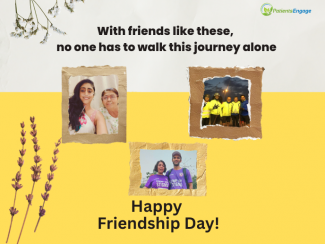
Friendship does not mean sharing good times only. When friends are with you during your worst phase, helping you to stand up, all the time directing you to take the right decisions, it takes on a different meaning. On this Friendship Day, three people with different health conditions share the huge support they have always received from their friends.
Akanksha Patankar Mirji, Epilepsy Warrior
How have friends played a role in your lives? Within the community? Or outside? Importance of their roles in your lives.
Friends have played a very crucial role ever since I moved to Mumbai to do my Post-Graduate studies, almost 3 decades ago. I am grateful for a multitude of friends led by what many refer to as, a ‘Girl Gang’ along with a few friends from my Post-Grad Days, my professional journey and a few others through my pre-diagnosis period. Our friendships have truly stood the test of time. The mutual trust and belief we share have assisted our respective journeys – family, career, relationships and so much more. They were some of the most critical friends I reached out to during my initial diagnosis, and they have supported me through my journey, so far.
Apart from this, friends from within the Epilepsy Community - Persons with Epilepsy (PWEs) and Caregivers) have become an integral part of my life. They are able to understand my daily battle. They uplift my spirits when my spirits dip, and inspire me to stand up each time that I fall. They are my Epilepsy Warrior friends who consistently remind me that I am a Warrior, too. We have shared sorrows and joys.
How do they continue to support you?
My friends have always stood by me. A few years ago, I had multiple seizures in a short span of time, after having been seizure-free for almost 3 years. My husband literally ‘phoned a friend’ and the Girl Gang was waiting for us at the Emergency Room when we reached the hospital. They played the role of caregivers while my husband completed the admission formalities at the hospital. Even during the period of my stay at the hospital, they were always available. Thereafter, they continue to lend support to me by helping with personal decision-making, motivating me through my Epilepsy journey and always being there to celebrate the ups while navigating the lows. My friends support every decision that I make by helping me weigh the pros and cons prior to making the decision. And once I have decided, they stand by me, and help me stand tall.
Some of my deepest friendships are with the Epilepsy Warriors from the first time that we interacted. They have lent support to me through my emotional, physical and mental journey. We share our experiences with each other. For instance, I have learnt a lot from them about how to manage emotions, plan time in a more effective manner, become more organized, maintain a positive mindset, and they support all the activities that I participate in. They are the ones who truly help my awareness to grow about Epilepsy, thereby enhancing my self-awareness. Running was something that I was inspired to try by my support group, and it has become my elixir of life. There are fellow athletes from my support group who have even provided the right guidance to ensure that I build my strength, resilience and stamina as an athlete. They lend support by inspiring me to do more for the community, providing guidance related to health.
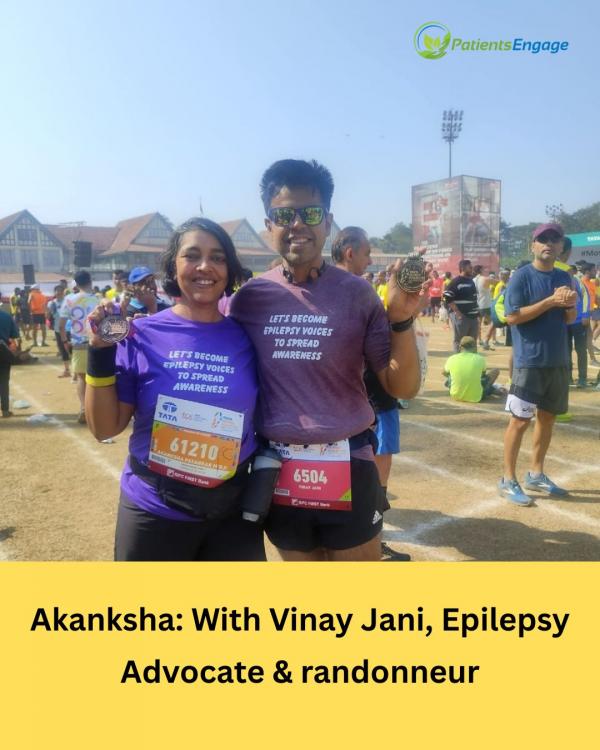
What is the effort on both sides to make it work?
It takes ‘2 to Tango’. Therefore, it is essential for both sides to put in their best effort to make the friendship work.
With my friends from outside the Epilepsy community, we have vivid memories and consistently create new ones, together. I ensure that I, too, lend support to them and assist them in the same manner as they do with me. For any challenges that they ever have to overcome – Physical, Mental or Emotional - they know they can count on me to be there for them. We may not all reside in the same city, yet we stay in touch with each other, and meet whenever we can. And when we do meet, it is like no time went by at all.
Epilepsy Warrior friends reach out to me, and I reciprocate with equal warmth. We share our stories, listen attentively to each other and discuss how to overcome challenges. Apart from that, we share ideas for spreading more awareness and how to overcome stigma along with the importance of skill building, having a routine and ensuring daily exercise. Our support group works together in a cohesive manner for community outreach and the growth of Epilepsy Awareness. A recent example of that is the Jiyo Samman Se run -India's 1st timed run for Epilepsy Awareness held in March 2025, that we worked on, together, in order to make it a successful run for approx. 500 participants. It was an exhilarating moment for us. We ensured that the funds raised were used to conduct a rural medical camp. All of us also have a lot of fun together by going on picnics, celebrating important days like the traditional festivals, International Epilepsy days, and by doing activities like dance, yoga and so much more. Mutual support is truly wonderful.
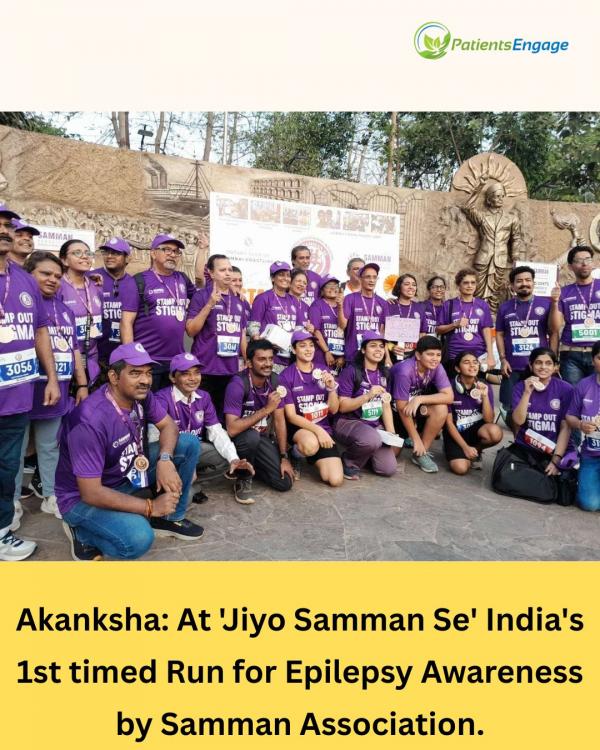
How have they been instrumental in directing you to the right diagnosis and treatment?
My Epilepsy Warrior friends are a bundle of information. While I was diagnosed approx. 15 years ago, many were diagnosed much earlier than that. By having open discussions with them about my treatment and the effects of certain medications, they have helped by sharing information so that I could increase my own knowledge about it. They have also always suggested that I stay in touch with my neurologist to keep him informed about effects of any changes in treatment or medication. It has actually led to a change in course of my treatment, on occasions. They also support me by sharing any information related to other doctors, as and when required.
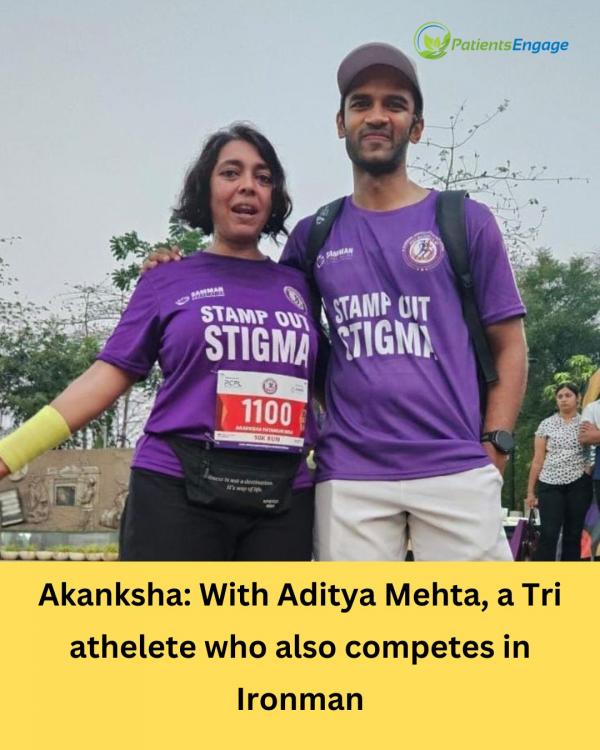
How did the friends make it easier to ask for help?
Friendship is based on trust and a strong bond of mutual understanding. Friends from within the Epilepsy Community and outside have made it easier to ask for help as there is no space for stigma in friendship. It's as simple as that when asking friends for help. An oft repeated phrase that most people relate to when it comes to friendship - A friend in need is a friend indeed!
Ashwini Nalhe, Scleroderma
How have friends played a role in your life?
I’ve been incredibly lucky to have friends who are kind, positive, and full of love. Living with multiple autoimmune conditions hasn’t been easy, and in times like these, emotional support matters just as much as medical care. My friends have stood by me through everything—whether it’s my personal struggles, work pressures, or health challenges.
Are they from the community or outside? And how important are they?
Both. I have friends from outside the patient community who go out of their way to make me feel included. Since I’ve been on oxygen for the past 3.5 years, there are restrictions on where I can go and how I can move around. They understand that. They choose less crowded places, carry my oxygen machine, and make sure I’m comfortable and safe when we’re out. That kind of thoughtfulness means the world.
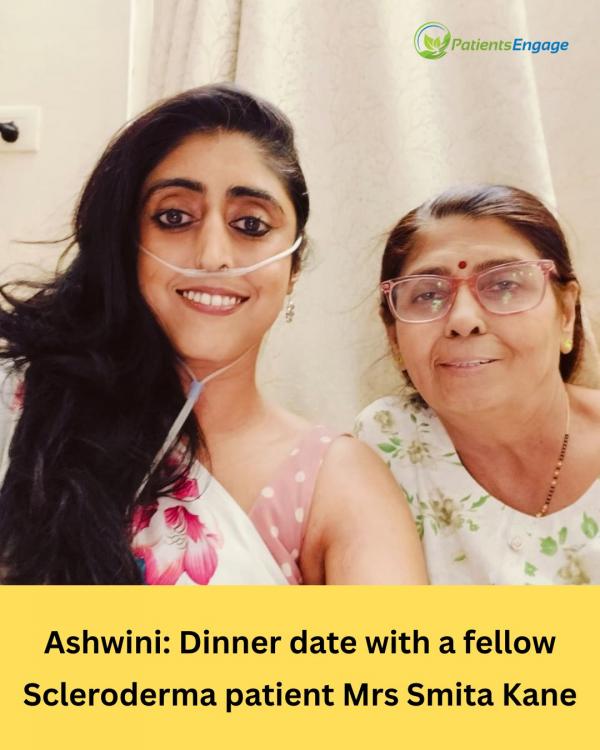
How do they continue to support you now?
They’re always finding ways to make sure I don’t feel left out. When I can’t go out due to pain or fatigue—especially with the avascular necrosis in my hips—they come home instead. Some of them have flown in from different cities or even countries just to spend time with me. That effort, that love, is something I deeply value.
What does it take on both sides to keep the bond strong?
Our friendships are rooted in love and respect. Many of my friends have what looks like a picture-perfect life—loving families, adorable children, supportive partners. I don’t feel envious of any of that. In fact, I’ve grown really close to their kids—I genuinely love them. There’s a lot of warmth on both sides, and that’s what keeps our bond strong.
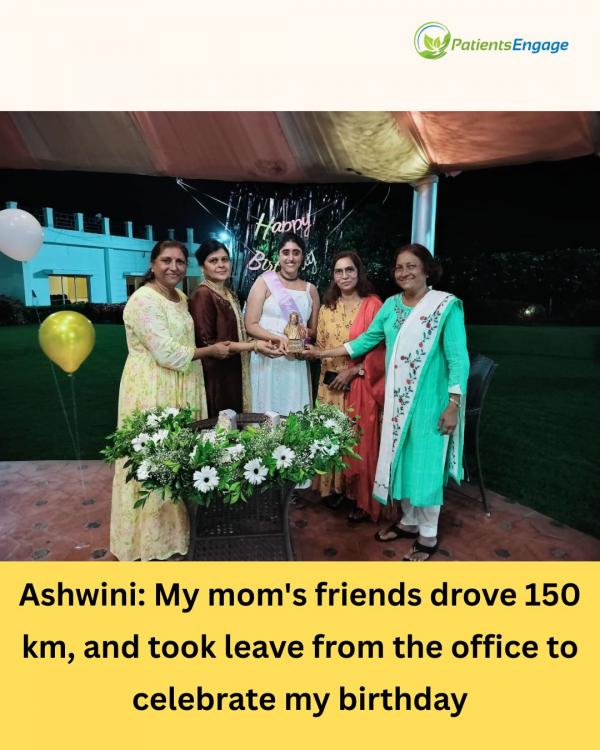
How did the friends make it easier to ask for help?
My friends and even my brother’s friends have been a huge support in my journey with systemic sclerosis, interstitial lung disease, and pulmonary arterial hypertension. They have never made me feel like a burden, which makes it easier to ask for help when I need it.
They visit me often, include me in all their family events, and never let my oxygen cannula come in the way—even when others stare or keep their distance. When I cannot drive or do not feel like taking a cab, they quietly make sure I reach my hospital appointments and get home safely.
They do not judge me even when I am unable to control my vomiting due to achalasia cardia and an almost absent diaphragm. Instead, they help me settle down with calm and care.
Their constant presence, without judgment or pity, has brought comfort, strength, and a sense of belonging that means more than words can express.
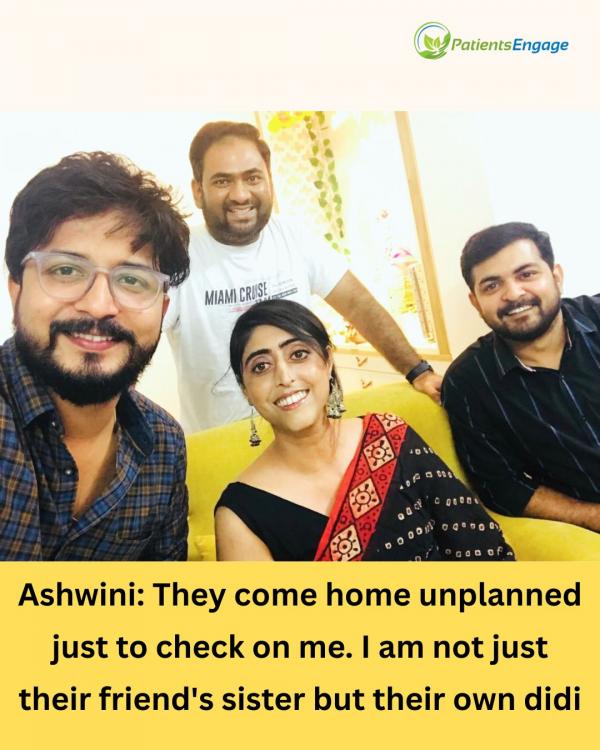
Vinay Jani, Epilepsy Warrior
How have friends played a role in your lives? Within the community? Or Outside? Importance of their roles in their lives.
Friends have been my steady pillars of strength through my journey with epilepsy. Both within the epilepsy community and outside of it, they have given me a sense of belonging and acceptance. Their presence reminded me that I’m not defined by my condition but by the values, passions, and dreams I carry. Whether cheering for me during marathons or standing by me on challenging health days, their role has been nothing less than life-changing.
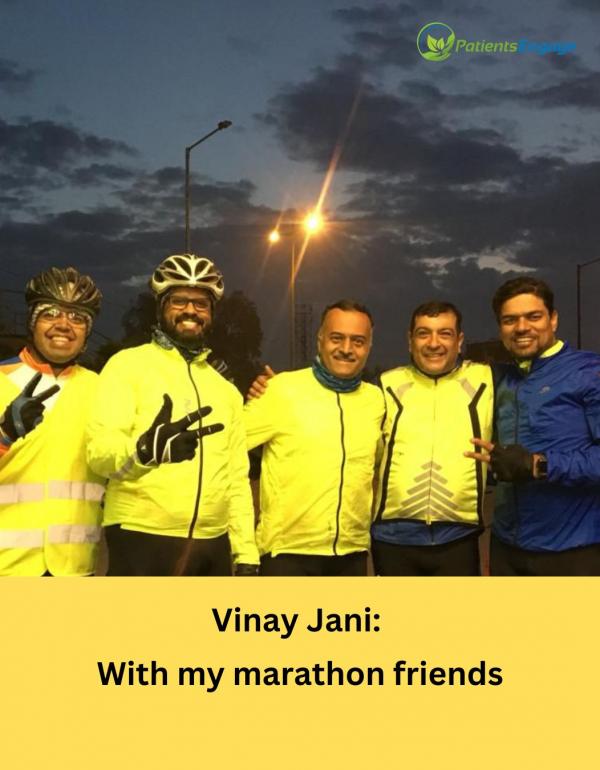
How do they continue to support you?
They support me in countless ways — from offering encouragement before endurance events to simply checking in with a kind message on difficult days. Some friends help spread awareness about epilepsy alongside me, while others give me the space to share openly without judgment. Their continuous presence reinforces my belief that no one has to walk this journey alone.
What is the effort on both sides to make it work?
Friendship is a two-way street. On my part, I try to be open about my condition and respect the care and concern they show. At the same time, my friends make an effort to learn, listen, and understand the challenges I face. Together, we’ve built a space of trust and compassion where both support and normalcy coexist.
How have they been instrumental in directing you to the right diagnosis and treatment?
I have been fortunate to have friends who guided me toward the right medical support at the right time. Some used their knowledge or contacts to help me find the best care, while others simply ensured I never lost hope during the long search for answers. Their guidance was not only practical but also deeply emotional, as it reassured me that I had people fighting alongside me.
How did the friends make it easier to ask for help?
The unconditional trust and nonjudgmental attitude of my friends made it easier to ask for help. Knowing I wouldn’t be looked at differently or seen as weak gave me the courage to reach out whenever I needed support. And their warmth, in turn, changed my request for help into a symbol of strength and shared humanity.
As told to Moyna Sen






